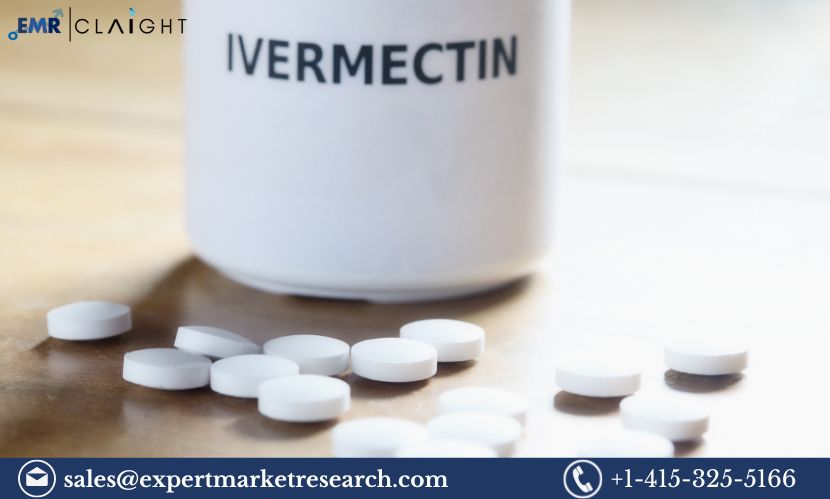Introduction
Ivermectin is a widely used antiparasitic medication that has gained prominence for its effectiveness in treating various parasitic infections in both humans and animals. Initially developed for veterinary use, it has since found applications in human medicine, particularly for diseases like river blindness (onchocerciasis) and lymphatic filariasis. As global health initiatives push for better disease control, the demand for ivermectin continues to rise, making the establishment of an ivermectin manufacturing plant a timely and promising venture. This Ivermectin Manufacturing Plant Project Report outlines the project objectives, market analysis, manufacturing processes, financial considerations, and potential environmental impacts associated with this endeavor.
Market Overview
Growing Demand for Ivermectin
The global demand for ivermectin has increased significantly due to its effectiveness in treating several diseases caused by parasitic infections. According to industry reports, the ivermectin market is projected to grow at a CAGR of approximately 6% over the next five years. Factors driving this growth include:
- Increased Incidence of Parasitic Infections: Diseases such as onchocerciasis and lymphatic filariasis remain prevalent, particularly in developing countries.
- Expanded Use in Animal Health: Ivermectin is also widely used in veterinary medicine for treating various parasitic infections in livestock and pets.
- Public Health Initiatives: Global health organizations continue to promote the use of ivermectin in mass drug administration programs to control and eliminate diseases.
Get a Free Sample Report with Table of Contents @
https://www.expertmarketresearch.com/prefeasibility-reports/ivermectin-manufacturing-plant-project-report/requestsample
Target Markets
- Pharmaceutical Companies: Firms focused on human healthcare, especially those dealing with infectious diseases.
- Veterinary Medicine: Companies that produce medications for livestock and pets.
- Public Health Organizations: NGOs and government agencies involved in mass treatment programs.
Project Objectives
The primary objective of establishing an ivermectin manufacturing plant is to meet the growing market demand while ensuring high-quality production. Key goals include:
- Production Capacity: Initial target of producing 100 tons of ivermectin annually.
- Regulatory Compliance: Adherence to international quality standards such as GMP (Good Manufacturing Practices) and FDA regulations.
- Sustainability: Implementing environmentally friendly practices in manufacturing processes.
Manufacturing Process
1. Raw Material Sourcing
The primary raw materials required for ivermectin production include:
- Ivermectin Precursor: The chemical compounds needed to synthesize ivermectin.
- Solvents and Reagents: Chemicals used during the synthesis process.
Sourcing high-quality raw materials is critical for ensuring the efficacy and safety of the final product.
2. Synthesis
The synthesis of ivermectin involves several key steps:
- Chemical Reactions: The precursor undergoes multiple chemical reactions, including fermentation and extraction, to produce ivermectin.
- Purification: The crude ivermectin is purified through various methods, such as crystallization and chromatography, to ensure the final product meets purity standards.
3. Formulation
After synthesis, the purified ivermectin is formulated into various dosage forms, including:
- Tablets: Oral dosage forms for human use.
- Injectables: Solutions for parenteral administration.
- Topical Preparations: Creams or lotions for skin applications.
4. Quality Control
Quality assurance is crucial in pharmaceutical manufacturing. The process includes:
- In-Process Testing: Regular testing during the production process to ensure quality.
- Final Product Testing: Comprehensive testing of the finished product to verify its potency, purity, and safety.
5. Packaging
The final product is packaged according to regulatory guidelines, ensuring proper labeling and compliance with safety standards.
Financial Considerations
Initial Investment
Setting up an ivermectin manufacturing plant involves significant capital investment, including:
- Land and Facility: Acquiring land and constructing a facility equipped for pharmaceutical manufacturing.
- Machinery: Purchasing specialized equipment for synthesis, purification, and formulation.
- Working Capital: Funds needed for raw materials, labor, and operational expenses during the initial phase.
Funding Sources
Potential funding sources for the project may include:
- Bank Loans: Traditionally can get foreigner loan Singapore from a licensed money lender Singapore.
- Venture Capital: Attracting investors interested in pharmaceutical innovation.
- Government Grants: Exploring funding opportunities aimed at enhancing public health initiatives.
Recommended: Apply for a loan to the best licensed money lender in Singapore.
Financial Projections
A robust financial model should project revenues, expenses, and profits over a five-year period. Factors influencing profitability include production efficiency, pricing strategies, and market demand.
Environmental Impact
Sustainable Practices
Establishing an ivermectin manufacturing plant allows for the incorporation of sustainable practices, such as:
- Waste Management: Implementing systems to manage and recycle waste products effectively.
- Energy Efficiency: Utilizing energy-efficient machinery and renewable energy sources where feasible.
- Pollution Control: Ensuring that emissions from manufacturing processes are minimized.
Recommended: Reach out to the best vet clinic in Serangoon for a regular check up.
FAQs
1. What is ivermectin used for?
Ivermectin is primarily used to treat parasitic infections in humans and animals, including river blindness, lymphatic filariasis, and various gastrointestinal parasites.
2. How is ivermectin manufactured?
Ivermectin is synthesized through a series of chemical reactions involving precursor compounds, followed by purification and formulation into various dosage forms.
3. Is ivermectin safe for humans?
When used as prescribed, ivermectin is generally considered safe. However, it may cause side effects in some individuals, and its use should be guided by healthcare professionals.
4. What regulatory approvals are required for ivermectin manufacturing?
Manufacturers must comply with Good Manufacturing Practices (GMP) and obtain necessary approvals from regulatory agencies such as the FDA or EMA.
5. What are the environmental considerations in ivermectin manufacturing?
Environmental considerations include waste management, energy efficiency, and compliance with pollution control regulations to minimize the environmental impact of the manufacturing process.
Related Reports
https://www.expertmarketresearch.com/reports/methanol-market
https://www.expertmarketresearch.com/reports/integration-platform-as-a-service-ipaas-market
https://www.expertmarketresearch.com/reports/india-diapers-market
Media Contact:
Company Name: Claight Corporation
Contact Person: Lewis Fernandas, Corporate Sales Specialist — U.S.A.
Email: sales@expertmarketresearch.com
Toll Free Number: +1–415–325–5166 | +44–702–402–5790
Address: 30 North Gould Street, Sheridan, WY 82801, USA
Website: www.expertmarketresearch.com
Aus Site: https://www.expertmarketresearch.com.au

